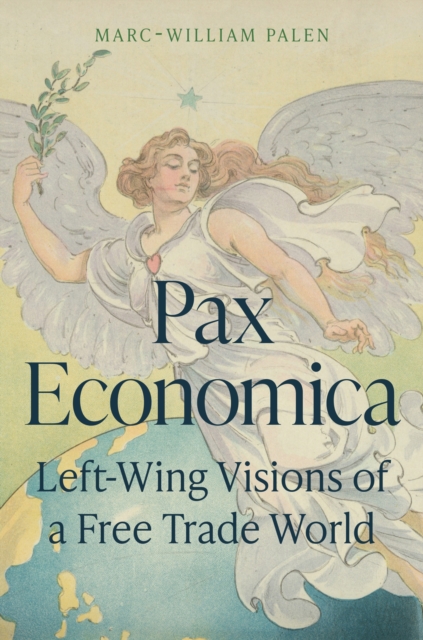
Pax Economica : Left-Wing Visions of a Free Trade World Hardback
by Marc-William (Senior Lecturer) Palen
Hardback
Description
The forgotten history of the liberal radicals, socialist internationalists, feminists, and Christians who envisioned free trade as the necessary prerequisite for anti-imperialism and peaceToday, free trade is often associated with right-wing free marketeers.
In Pax Economica, historian Marc-William Palen shows that free trade and globalisation in fact have roots in nineteenth-century left-wing politics.
In this counterhistory of an idea, Palen explores how, beginning in the 1840s, left-wing globalists became the leaders of the peace and anti-imperialist movements of their age.
By the early twentieth century, an unlikely alliance of liberal radicals, socialist internationalists, feminists, and Christians envisioned free trade as essential for a prosperous and peaceful world order.
Of course, this vision was at odds with the era’s strong predilections for nationalism, protectionism, geopolitical conflict, and colonial expansion.
Palen reveals how, for some of its most radical left-wing adherents, free trade represented a hard-nosed critique of imperialism, militarism, and war. Palen shows that the anti-imperial component of free trade was a phenomenon that came to encompass the political left wing within the British, American, Spanish, German, Dutch, Belgian, Italian, Russian, French, and Japanese empires.
The left-wing vision of a “pax economica” evolved to include supranational regulation to maintain a peaceful free-trading system—which paved the way for a more liberal economic order after World War II and such institutions as the United Nations, the European Union, and the World Trade Organization.
Palen’s findings upend how we think about globalisation, free trade, anti-imperialism, and peace.
Rediscovering the left-wing history of globalism offers timely lessons for our own era of economic nationalism and geopolitical conflict.
Information
-
Out of stock
- Format:Hardback
- Pages:328 pages, 10 b/w illus.
- Publisher:Princeton University Press
- Publication Date:27/02/2024
- Category:
- ISBN:9780691199320
Information
-
Out of stock
- Format:Hardback
- Pages:328 pages, 10 b/w illus.
- Publisher:Princeton University Press
- Publication Date:27/02/2024
- Category:
- ISBN:9780691199320






